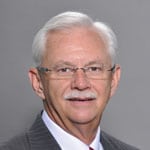
The UTU and Sheet Metal Workers International Association – now combined into the Sheet Metal, Air, Rail and Transportation Workers (SMART) – along with other labor organizations, public interest groups, congressional Democrats and moderate Republicans are working on Capitol Hill to block these attempts, which could be devastating to working families.
UTU National Legislative Director James Stem and SMWIA Director of Governmental Affairs Jay Potesta outlined the conservatives’ agenda that has surfaced in proposed congressional transportation reauthorization and budget legislation:
* Cut $31.5 billion in federal transportation spending, which would threaten some 500,000 American jobs.
* Eliminate federal spending for Amtrak and expansion of intercity rail-passenger service and high-speed rail, with a direct impact on jobs associated with that service.
* Gut federal spending for the Alaska Railroad, which would force elimination of scores of train and engine workers represented by the UTU.
* Delay implementation of positive train control, which is a modern technology to reduce train accidents and save lives and limbs.
* Eliminate federal spending for expansion of local and regional transit service as Americans scramble to find alternatives to driving in the face of soaring gasoline prices. The federal spending cut would prevent the return to work of furloughed workers from budget-starved local transit systems and likely cause layoffs of still more transit workers.
* Encourage privatization of local transit systems, which would open the door for non-union operators eager to pay substandard wages and eliminate employee health care insurance and other benefits.
* Remove any requirement for shuttle-van operators, whose vehicles cross state lines, from paying even minimum wage or overtime – a proposal, which if enacted, could lead to applying that legislation to interstate transit operations.
* Eliminate Railroad Retirement Tier I benefits that exceed Social Security benefits even though railroads and rail employees pay 100 percent of those benefits through payroll taxes, with no federal funds contributing to Tier I benefits that exceed what is paid by Social Security.
* Replace direct federal spending on Medicare in favor of handing out vouchers to be used to purchase private insurance, which will undercut the viability of Medicare.
* Provide large tax breaks to millionaires and preserve tax breaks for Wall Street hedge funds that cater to the wealthy, while cutting by two-thirds federal assistance to veterans and public schools.
The UTU member-supported political action committee (PAC) is helping to fund election campaigns by labor-friendly candidates, and a labor-wide “get out the vote” drive will go door-to-door across America in support of labor-friendly candidates in advance of November elections.
In the meantime, UTU and SMWIA legislative offices will continue their education campaign on Capitol Hill, visiting congressional offices to explain the economic devastation the current conservative agenda would impose on working families.
 By UTU International President Mike Futhey
By UTU International President Mike Futhey An arbitrator has ruled that a merger between the UTU and the Sheet Metal Workers International Association (SMWIA) be implemented and that the presidents of the two unions – or their designees — meet to decide how the implementation is to proceed.
An arbitrator has ruled that a merger between the UTU and the Sheet Metal Workers International Association (SMWIA) be implemented and that the presidents of the two unions – or their designees — meet to decide how the implementation is to proceed.